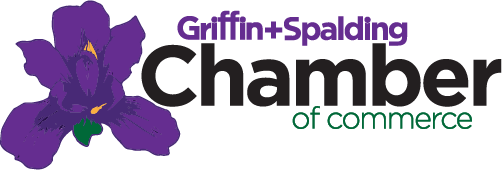Guidance for Employers
GA DOL Frequently Asked Questions for Individuals
GA DOL Frequently Asked Questions for Employers
The following guidance may help prevent workplace exposures to acute respiratory illnesses, including the
Coronavirus, in non-healthcare settings. The guidance also provides planning considerations if there are more
widespread, community outbreaks of the Coronavirus from the Centers for Disease Control and Prevention
(CDC). This guidance is based on what is currently known about the Coronavirus Disease 2019 (COVID-19).
All employers should be ready to implement strategies to protect their workforce from the Coronavirus while
ensuring continuity of operations. As with all illnesses, sick employees should stay home and away from the
workplace, use cough and sneeze etiquette, frequently clean hands with soap and water, and routinely clean
commonly touched surfaces.
TIPS FOR PREVENTING THE SPREAD OF THE CORONAVIRUS AT WORK FROM THE CDC
Source: https://www.cdc.gov/coronavirus/2019-ncov/specific-groups/guidance-business-response.html
- Determine whether flex working is an option: Review human resources policies and explore whether
you can establish policies and practices, such as flexible worksites (e.g., telecommuting) and flexible
work hours. Supervisors should educate employees that if they become sick they should telework
instead of coming into the workplace until symptoms are completely resolved. - Create an employee communications plan: Establish a process to communicate the latest
Coronavirus information to employees and business partners (utilize the U.S. Chamber of Commerce
Foundation’s Coronavirus (COVID-19) Workplace Tips For Employees). Anticipate employee fear,
anxiety, rumors, and misinformation, and plan communications accordingly. - Decide how to handle spikes in absenteeism: In some communities, early childhood programs and
K-12 schools may be dismissed, particularly if Coronavirus worsens. Determine how you will operate
if absenteeism spikes from increases in sick employees, those who stay home to care for sick family
members, and those who must stay home to watch their children if dismissed from school. - Coordinate with state and local health officials: Coordination with state and local health officials is
strongly encouraged for all businesses so that timely and accurate information can guide appropriate
responses in each location where their operations reside. Given the intensity of an outbreak may
differ according to geographic location, local health officials will be issuing guidance specific to
their communities. Also, employers should take the time now to learn about plans in place in each
community where they have a business by contacting their local public health department. - Make a business continuity plan: Be prepared to change your business practices if needed to
maintain critical operations (e.g., identify alternative suppliers, prioritize customers, consider digital
meetings, or temporarily suspend some of your operations if needed).
GUIDANCE FOR EMPLOYERS TO PLAN AND RESPOND TO CORONAVIRUS (COVID-19)
The following guidance may help prevent workplace exposures to acute respiratory illnesses, including the
Coronavirus, in non-healthcare settings. The guidance also provides planning considerations if there are more
widespread, community outbreaks of the Coronavirus from the Centers for Disease Control and Prevention
(CDC). This guidance is based on what is currently known about the Coronavirus Disease 2019 (COVID-19).
All employers should be ready to implement strategies to protect their workforce from the Coronavirus while
ensuring continuity of operations. As with all illnesses, sick employees should stay home and away from the
workplace, use cough and sneeze etiquette, frequently clean hands with soap and water, and routinely clean
commonly touched surfaces.
IN ADVANCE OF EMPLOYEES GETTING SICK TIPS FOR PREVENTING THE SPREAD OF THE CORONAVIRUS AT WORK FROM THE CDC
Source: https://www.cdc.gov/coronavirus/2019-ncov/specific-groups/guidance-business-response.html

